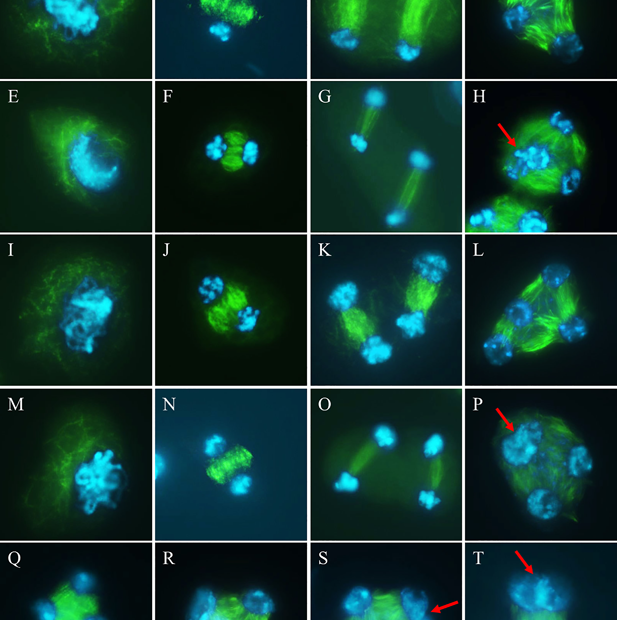Previously we have shown that low temperature stress in Arabidopsis causes defects in microtubule organization and cytokinesis in male meiocytes, which leads to the formation of diploid pollen. Because cytokinin (CK) mediates multiple physiological responses to cold stress, we investigated whether CK signaling is involved in cold-induced diploid pollen formation. To this end, we monitored male sporogenesis in a series of mutants defective in CK metabolism and signalling. Arabidopsis plants with altered CK homeostasis, that is, the ahk2-2 ahk3-3 double and the ahp2-1 ahp3 ahp5-2 triple mutant, were cold sensitive and displayed similar defective male meiotic cytokinesis as wild type plants upon cold stress. These findings demonstrate that the AHK2/3-AHP2/3/5 CK-signaling module is not required for cold-induced ploidy stability of male gamete in Arabidopsis. Cytological analysis further revealed that the cold-induced cytokinesis defects in the ahk2-2 ahk3-3 mutant correlated with irregular organization of the radial microtubule array (RMA) in tetrad microspores at the end of male meiosis. Contrary to the ahk and ahp mutants, Arabidopsis plants defective for ARR1, a downstream target of ahk and ahp mediated CK signalling, displayed higher cold-tolerance of male meiotic cytokinesis program. We here suggest that the transcription regulator ARR1 may act independently from the CK AHK2/3-AHP2/3/5 signaling module in conveying the cold response to male meiocytes.
Cold interferes with male meiotic cytokinesis in Arabidopsis thaliana independently of the AHK2/3-AHP2/3/5 cytokinin signaling module
Cold interferes with male meiotic cytokinesis in Arabidopsis thaliana independently of the AHK2/3-AHP2/3/5 cytokinin signaling module
